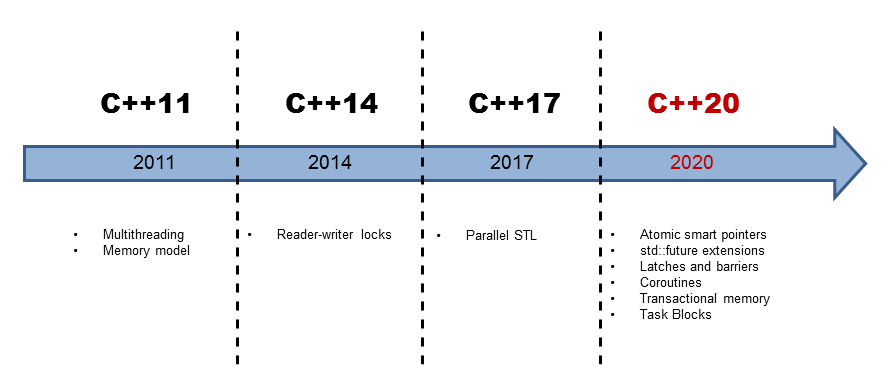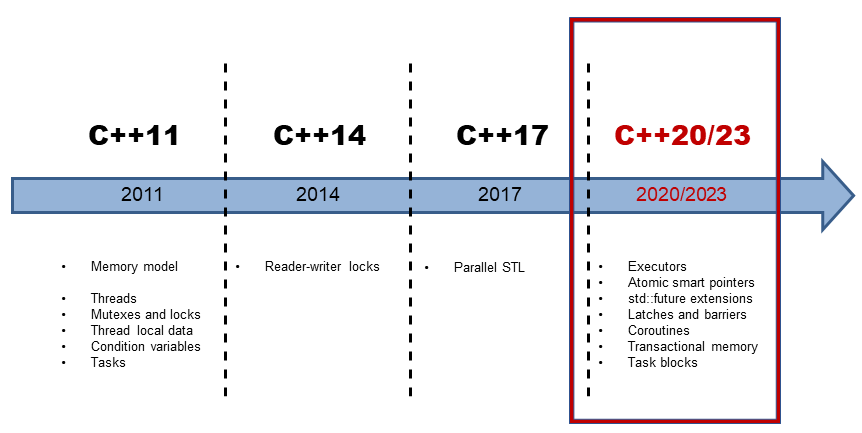
The Time Library
/
0 Comments
A blog dealing with multithreading in modern C++ but not writing about the new time library is incomplete.…

Multithreading with C++17 and C++20
Forecasts about the future are difficult. In particular, when they are about C++20. Nevertheless, I…

Multithreading in Modern C++
With the new C++11 Standard, C++ faces the first time challenges of multicore architectures. The…

Dining Philosophers Problem III
This post ends the mini-series about the dining philosophers problem by Andre Adrian. Today, he applies…

Dining Philosophers Problem II
In the last post "Dining Philosophers Problem I", Andre Adrian started his analysis of the classical…

Dining Philosophers Problem I
At Christmas time, I had a few nice discussions with Andre Adrian. He solved the classical dining philosopher's…

A new Thread with C++20: std::jthread
One of the participants in my CppCon 2018 workshop asked me: "Can a std::thread be interrupted?". No,…

The End of my Detour: Unified Futures
After the last post to executors, I can finally write about the unified futures. I write in the post…

A Short Detour: Executors
A few weeks ago, one of the authors of the proposal to the futures in C++ Felix Petriconi wrote me an…

ABA – A is not the same as A
A common problem in concurrency is the so-called ABA problem. That means you read a value twice and each…
